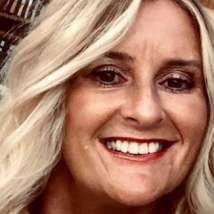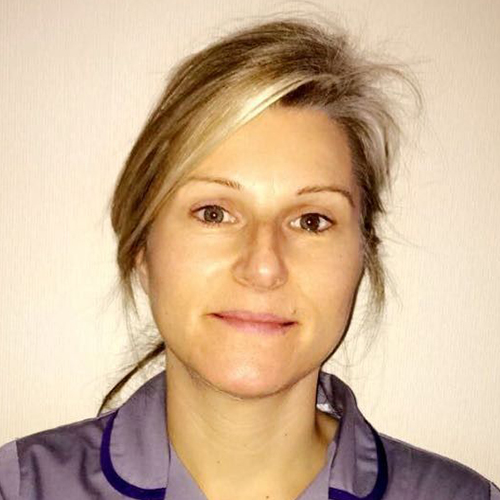A Legs Matter live webinar delivered in partnership with 
The webinar raised some very thought-provoking questions and some great discussion
- Lymphoedema / oedema is massively under recognised, do we need a mindset change on how it is considered as an omission of care or not undertaking a treatment (ie delaying compression) could be a harm?
- There is a much higher prevalence of chronic oedema than venous leg ulcers but no formal pathways in place especially for non-cancer related lymphoedema – it can be a postcode lottery
- We need to reduce variance of the fear factor – for example when talking compression to use mmHg rather than class so everyone knows what we are talking about – get the strength and fit of the compression right
- We cannot separate wounds and chronic oedema – treatments are often the same (eg skin care, nutrition, exercise, and compression)
- Early identification of oedema and supporting those in self-management leads to better outcomes and patient experience
- At early stages of oedema it’s not seen as an imminent harm – but over time it can escalate as it continually puts a strain on the lymphatic or venous system
- There is a huge psychological and physical impact of chronic oedema on the individual
- Burden is not just on the patient but also on the workforce of managing patients with significant oedema / heavy legs – imagine if these patients had intervention earlier!
- Knowing what compression system to use – bandaging, wraps or hosiery – treatment needs to be personalised for the patient. Containment should be our aim for those who do not have the specialised knowledge and skills
- Integrated Care Systems are perfectly placed to address issues across the health and social care sector so patients with chronic oedema are recognised early
- When treating a wound on one leg, don’t ignore the other leg!
Case study
- Key points to avoid harm as detailed in the Legs Matter 10-point plan
- Every patient should have access to evidence-based practice so compression is seen as the norm and not the exception. Should be like just putting your socks and shoes on!
- Increase access to the right products at the right time
- Actively listen to patients and relatives and personalise to the care setting and patient
- Address system knowledge and skills gaps to ensure the cause of the chronic oedema is understood
- Don’t be afraid to escalate when there is a need to refer on to specialist services
Background
Chronic oedema is an umbrella term for abnormal prolonged swelling of the lower leg potentially caused by many different factors, but more commonly with the venous and or lymphatic system. Unfortunately, awareness of chronic oedema is poorly understood, despite having significant consequences and a potential precursor to leg ulceration.
It is often seen as a benign condition and something that the patient just has to live with. Due to many factors such as over stretched or access to services, awareness of the condition and accurate diagnosis, patients are only managed if there is an associated wound or “leaky leg” or if it is of a cancer-related lymphoedema – all of which is the tip of the iceberg! The Leg’s Matter campaign seeks to address such a harm through its 10-point plan to radically rethink how people are treated with leg and foot conditions.
The question being – “Should not applying compression to patients living with chronic oedema be considered a harm?”
Objectives of the webinar
- Understand the size of the problem of chronic oedema in the UK – is it a hidden epidemic?
- Explore why do we only address the tip of the iceberg – e.g. when there is a wound or a cancer – related lymphoedema
- To explore how having better management of chronic oedema will also impact on leg ulceration (management and primary prevention of leg ulcers and lymphorrhoea)
- Understand how the system, access to services and lack of awareness and diagnosis of chronic oedema creates harm
- Discuss the importance for all Health Care Professionals to be able to identify the aetiology contributing to the chronic oedema and implement appropriate management strategies.
- Explore the importance of increasing confidence in applying compression with or without a wound for a patient living with chronic oedema and the benefits of compression
- Gain an awareness of the Legs Matters ten-point plan and, in particular, with chronic oedema how we should acknowledge it as a harm, address system knowledge, health inequalities and skills gaps and actively challenge the system to prevent deterioration and harm to our patients!
Who should watch?
If you have an interest in leg and foot conditions and how we can improve patient outcomes, this film is for you!
- Clinicians working in Primary Care eg Community Nursing, GPs, Practice Nurses, Aged Care & Domiciliary Care
- Lymphoedema Specialists
- Tissue Viability Specialists
- Clinicians working in the Acute Care Setting
Moderator
Ruth Yeoell – Medical Liaison at 3M
Ruth is a registered nurse who has expertise in all aspects of wound management. She has a specialised clinical and leadership background spanning over 20 years within vascular medicine. She is passionate about holistic assessment, delivery of evidence based and effective treatments for complex lower limb conditions, empowering patients and enhancing their quality of life. She currently sits on the Leg Ulcer Forum executive committee as a commercial member.

Speakers
Rebecca Elwell,
Rebecca is the Macmillan Lymphoedema Advanced Nurse Practitioner at the University Hospitals of North Midlands NHS Trust. She completed an Msc in Lymphoedema in 2012. In 2013 she opened the UKs only Red Legs clinic for patients with leg redness from a cause other than acute cellulitis. This has led to increased awareness of red legs and reduced hospital admissions. The Red legs pathway has been adopted by the British Lymphology Society (BLS) and endorsed by the National Legs Matter campaign.
She is a proud trustee of the BLS, a member of the BLS scientific committee, BLS children with lymphoedema special interest group and is the BLS annual conference organiser.

Kate Williams, Senior Lecturer in Tissue Viability at the University of Huddersfield and an Honorary Tissue Viability Nurse for Leeds Community Healthcare Trust
Kate is a Trustee and Treasurer of the Society of Tissue Viability and represents the Society as a member and Treasurer of the Legs Matter Coalition.










